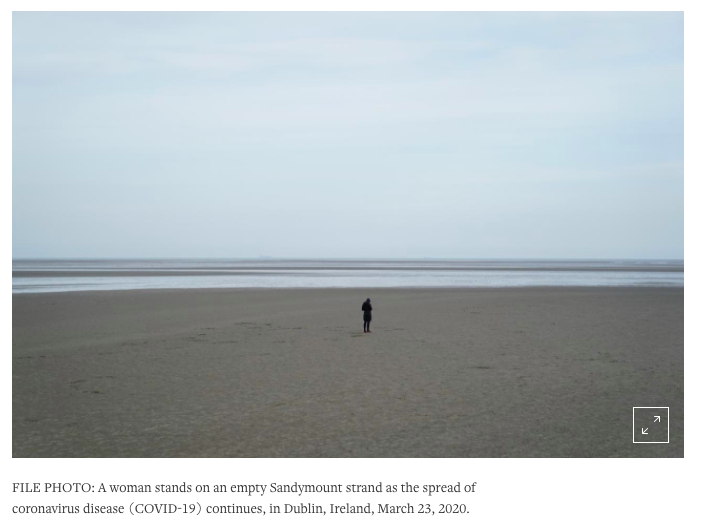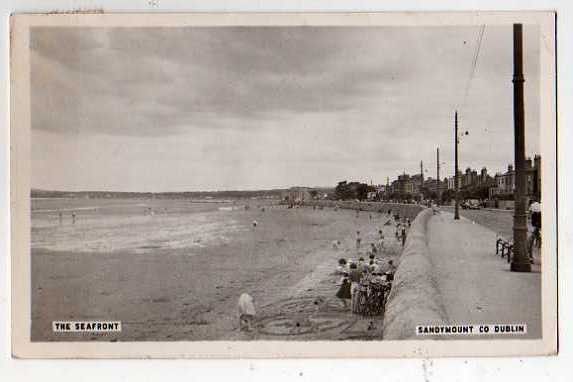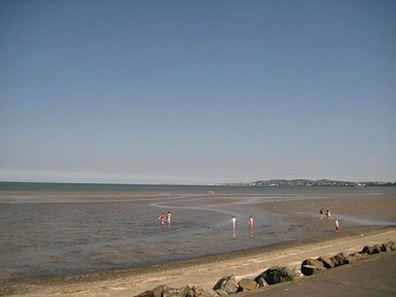
Ophelia, by Sir John Everett Millais, 1851
Stephen’s sad wandering along the shore is a lonely read. He reminisces on youthful ambitions of writing and longs for human connection. Whenever I read this chapter, I find myself completely unable to relate to his sense of isolation. I haven’t been alone in years. The only analogous experience I have would be traveling out of town for work and wandering around an unfamiliar city alone. Dining alone. Sleeping in a hotel room alone. I MISS THIS SO MUCH! But I digress.
A quote that stood out to me on this reading is “I am. A stride at a time” (U.31; 3.11). I shall think on this during power walks. A stride at a time.
Stephen reflects on drowning, on the man who recently drowned, thinking about drowning himself, and on how he could not save his mother. He says that drowning is a kind death: “Seadeath, mildest of all deaths known to man” (U.42; 3.482).
Is it true? Is drowning a peaceful death? I tried to find sources on this. I found a surprising number of Reddit posts on drowning. Many of the descriptions of near-drowning there did not sound mild or gentle to me. One poster mentioned water-boarding, a torture so cruel it was banned by the Obama administration. If drowning is so peaceful, why would a form of torture be based on the sensation of drowning? (Not surprisingly, Trump tried but failed to bring back waterboarding). I think Stephen was wrong.
Some facts about drowning:
- Ten people die each day from unintentional drowning, and on average 2 of them are under age 14.
- Drowning is responsible for more deaths among children ages one to four than any other cause except birth defects
- Drowning is the 3rd leading cause of unintentional injury death worldwide, accounting for 7% of all injury-related deaths.
- There are an estimated 236 000 annual drowning deaths worldwide.
- Global estimates may significantly underestimate the actual public health problem related to drowning.
- Children, males and individuals with increased access to water are most at risk of drowning.
- Drowning in salt water usually takes longer. When a drowning person inhales salt water, the salt concentration in lungs increases. It is then that water from blood rushes into the lungs to dilute the salt water. As a result, the blood thickens. When the blood thickens, heart comes under pressure and causes cardiac arrest. This takes about 8-10 minutes. This is why it is easier to rescue people drowning in salt water like sea or ocean because rescuers get enough time to prevent cardiac arrest by hydrating with fresh water.
- Real signs of drowning (as opposed to thrashing about and yelling “save me!!!”
- Head low in the water, with mouth at water level
- Head tilted back, mouth open (a child’s head may fall forward)
- Body vertical in the water
- Eyes glassy, unfocused, or closed
- Hair over eyes or face
- Hyperventilating, gasping, or not breathing
- Trying to swim but making no headway
- Trying to roll over on back
Sources: https://www.redcross.org/get-help/how-to-prepare-for-emergencies/types-of-emergencies/water-safety/drowning-prevention-and-facts.html; https://www.who.int/news-room/fact-sheets/detail/drowning; https://factslegend.org/15-interesting-drowning-facts/; https://beprepared.com/blogs/articles/the-real-signs-of-drowning
Summer swimming season is here. Be safe!



